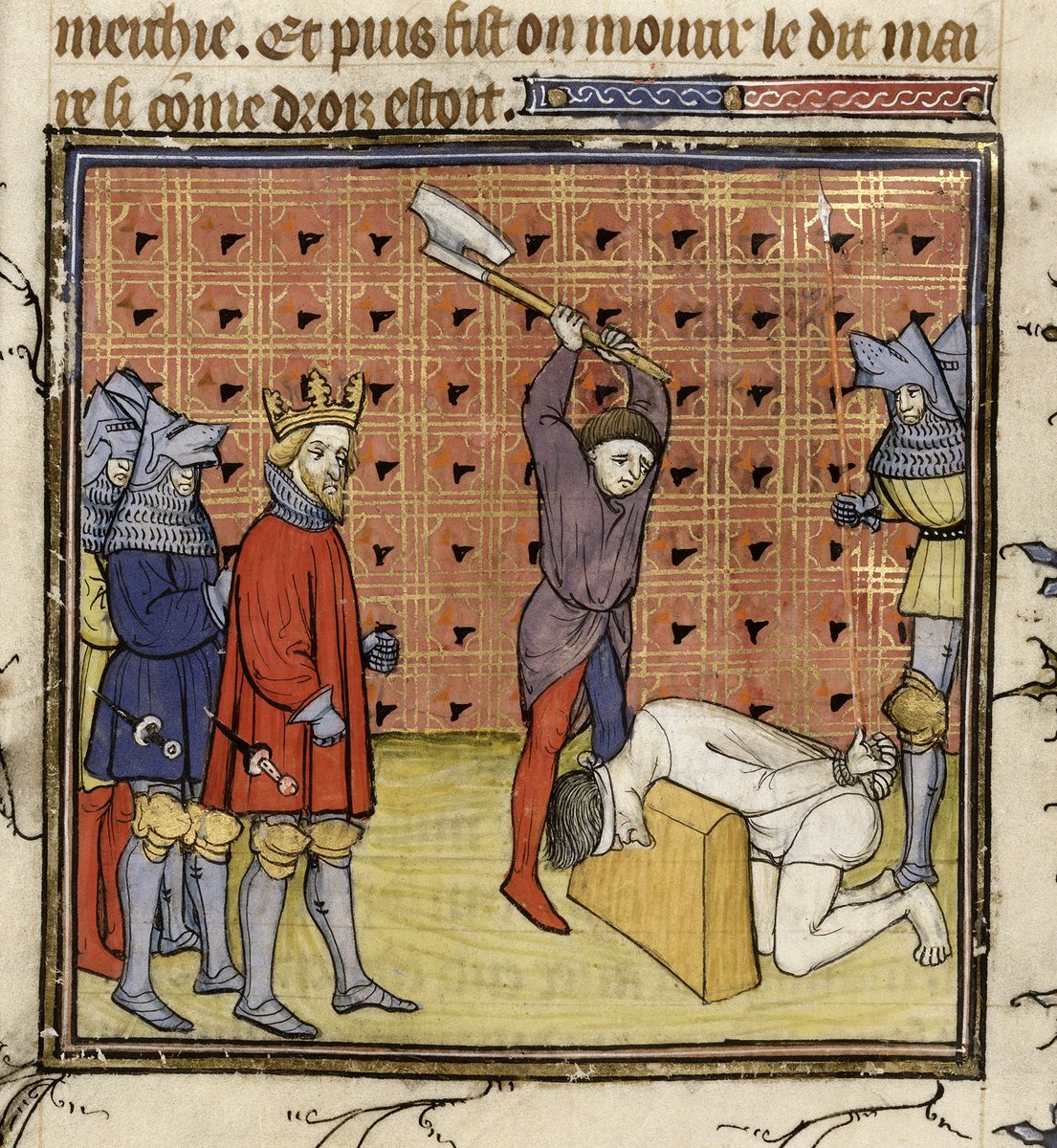
Welcome to #Tweethistorian 🧵4 by @mediaevalrevolt on the #Jacquerie. I am making Thanksgiving dinner (in Scotland 🏴) today and it's going to look exactly like this: 

In the meantime, let me tell you about who actually joined the #Jacquerie and how they did and did not get along. Here I'm drawing from my article in Speculum last year and ch. 7 of my book. - jfb
journals.uchicago.edu/doi/abs/10.108…
journals.uchicago.edu/doi/abs/10.108…
First up, men and women: All but 11 of the ca. 500 rebels we know by name were male, but this doesn't mean that women didn't participate or weren't important to the revolt. - jfb
Chronicles say that women served the rebels food and drink, that they dressed up in the nobles' stolen clothes, and a few individual women attacked noble manors alongside the more numerous men. They also looked after the homes and village while the men were away- jfb 

We might hesitate to 'count' those domestic acts as part of the #Jacquerie, but the revolt simply could not have happened w/out someone weeding the crops, milking the cows, and watching the babies. - jfb
This brings me to the rurality of the revolt. The Jacques cooperated closely not only with Paris but also with provincial cities, inc. Amiens, Senlis, Meaux, Montdidier, and Beauvais. Most of the Jacques Bonhommes themselves though were peasants. -jfb
A French historian named Raymond Cazelles once wrote an article claiming that the Jacquerie wasn't a peasants revolt and that the majority of the rebels were literate artisans. - jfb
Cazelles only thought this because he relied on a published set of sources that was mostly about the revolt's leadership. The rank and file were considerably less well-healed and mostly made their living through farming. - jfb
You can see the difference between the background of the captains and the rank and file in this chart. Leaders were also less likely to be manual labourers and more likely to be minor gov't officials or clerics (both jobs requ'ing literacy) - jfb 

These differences help in part to explain the conflicts between captains and their troops that I talked about yesterday. Another fault line lay in rural-urban relations - jfb
The Jacques sought out urban support, writing to cities to ask them to join the revolt. A number of the most important leaders had ties to the city of Senlis (very near the initial epicentre at St-Leu). - jfb
Senlis remained a bastion of revolt, even after the Jacques began to suffer defeats. Nobles who came to invade the city were humiliated, not least by women pouring boiling water down on them near this gate - jfb 

But other cities abandoned the Jacques when the nobles began to get the upper hand. This was a disaster for the revolt, and probably the single most important reason that the #Jacquerie failed. -jfb
Without the cities' walls, the Jacques had nowhere to hide from the nobles, who mowed them down in the fields like wheat. - jfb
On that note, I'm off to cook this bird. I'll be back tomorrow to talk about the end and aftermath of the #Jacquerie. Eat well, everybody. - jfb 

• • •
Missing some Tweet in this thread? You can try to
force a refresh









